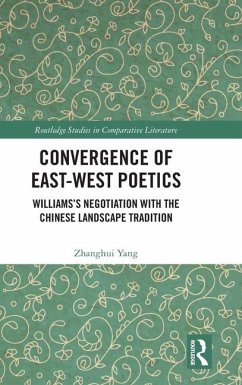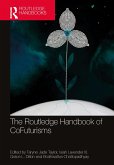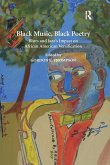The present book examines William Carlos Williams's negotiation with cultural modes and systems of the Chinese landscape tradition in his landscape writing. Focusing on Walliams's landscape modes of landscape with(out) infused emotions, the book builds a linkage between their interactions with Chinese landscape aesthetics and shows how these conversations helped shape Williams's cross-cultural landscape poetics. The exploration of Williams's experiment with the Chinese serene interplay of self and landscape, the interfusion of scene and emotion, an idea of seeing from the perspective of Wang Guowei's theory of jingjie, and the poetic space of frustration and completion in the context of space and human geography, expand the understanding of a cross-cultural landscape tradition developed by Williams through bringing into focus the convergence of East-West poetics.
Zhanghui Yang's new book points a deep-focused lens at a hitherto, largely ignored relationship between Chinese landscape poetry and Modernism. While Pound's indebtedness to the practice of Rihaku, Mei Sheng and others has already been explored intricately by scholars like Qian and Saussy, a full examination of the impress of Chinese landscape poetry on the work of William Carlos Williams is long overdue. Yang's analysis is simultaneously deft and wide-ranging, as well as highly convincing, and marks a fresh and exciting beginning in Williams scholarship.
Matthew Gibson, Associate professor, University of Macau, China
Zhangui Yang's monograph is a compelling reconceptualization of Williams's engagement with Chinese culture. Through carefully targeted but adventurous scholarship on landscape aesthetics, Yang brings a fresh perspective to the venerable theme of place in Williams's oeuvre. This tack sets the book apart from other important studies of Williams, and is supported by a wealth of contextual information on Chinese landscape tradition - as well as its complex intersections with Imagism and American modernist thought. In doing so, Yang helps connect crucial moments across the arc of William's career where the poet's relentless dialectics are illuminated by his intellectual encounters with China.
Eric White, Reader in American Literature, Oxford Brookes University, UK
Matthew Gibson, Associate professor, University of Macau, China
Zhangui Yang's monograph is a compelling reconceptualization of Williams's engagement with Chinese culture. Through carefully targeted but adventurous scholarship on landscape aesthetics, Yang brings a fresh perspective to the venerable theme of place in Williams's oeuvre. This tack sets the book apart from other important studies of Williams, and is supported by a wealth of contextual information on Chinese landscape tradition - as well as its complex intersections with Imagism and American modernist thought. In doing so, Yang helps connect crucial moments across the arc of William's career where the poet's relentless dialectics are illuminated by his intellectual encounters with China.
Eric White, Reader in American Literature, Oxford Brookes University, UK








